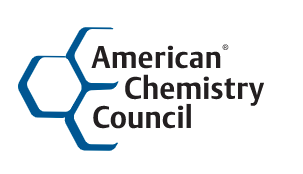Chemycal has been acquired by 3E
Learn MoreChemycal has been acquired by 3E
Learn MoreDiscover how Chemycal PRO helps you boosting your regulatory monitoring:

WASHINGTON (April 5, 2022) — Today, the American Chemistry Council (ACC) is releasing findings from its review of the processes for the U.S. Environmental Protection Agency’s (EPA) Integrated Risk Information System’s (IRIS) draft formaldehyde assessment that suggest the draft document will fail to meet the agency’s standards for unwavering transparency, scientific integrity, and a robust, independent peer review process.
The IRIS program’s approach to performing scientific assessments has a troubling history and has been criticized for years for producing overly conservative reports that are out of step with current science. Utilizing public documents obtained through the Freedom of Information Act (FOIA), ACC’s analysis reveals a troubling pattern of process irregularities, lack of independence, bias, and conflicts of interest that demonstrates a need for greater scrutiny and transparency.
(*) Key officials involved in the National Academy of Sciences’ (NAS) upcoming review appear to have violated basic standards regarding independence, bias, and balance in the peer-review process. For example, the lead NAS staff officer was directly involved in developing the assessment under review while working at EPA.
(*) EPA is violating its own IRIS process and policies by ambiguously prioritizing this assessment in 2021 and failing to include critical steps, like a systematic review protocol for formaldehyde to allow peer reviewers and the public to determine if EPA is appropriately evaluating the science.
(*) The draft formaldehyde IRIS assessment lacked a thorough formal interagency review to ensure robust participation from all relevant other federal agencies, as well as the public.
Industry has consistently called for any formaldehyde assessment to use transparent, science-based standards and has diligently supported peer-reviewed published studies that improve understanding of formaldehyde.
“The IRIS program is not fulfilling its mission. The program has long had deficiencies, especially as it relates to formaldehyde. ACC has consistently called upon EPA to improve the design and conduct of its chemical assessments,” said Chris Jahn, President and CEO, ACC.
“ACC is requesting EPA take immediate steps to ensure that the draft formaldehyde IRIS assessment isn’t used as a risk communication tool, to guide regulations, nor to set policy at any level of government until EPA corrects the process errors and produces a document that meets scientific standards worthy of public confidence,” said Dr. Kimberly Wise White, Vice President of Regulatory & Scientific Affairs, ACC. “Time and time again, we have tried to provide solutions to help the program enhance its scientific integrity and transparency. Our hope is this analysis sheds light on ways the IRIS program can restore its credibility.”
CONTINUE READING ON www.americanchemistry.com
2013 © MyChemicalMonitoring. ALL Rights Reserved. About Us | Terms and Conditions